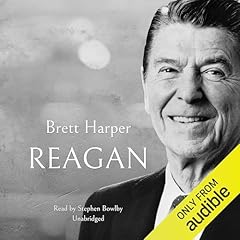
Final Victory
FDR’s Extraordinary World War II Presidential Campaign
No se pudo agregar al carrito
Add to Cart failed.
Error al Agregar a Lista de Deseos.
Error al eliminar de la lista de deseos.
Error al añadir a tu biblioteca
Error al seguir el podcast
Error al dejar de seguir el podcast
Prueba gratis de 30 días de Audible Standard
Compra ahora por $20.56
-
Narrado por:
-
Michael Kramer
When the 1944 presidential election campaign geared up late that spring, Franklin D. Roosevelt had already been in office longer than any other president. Sensing likely weakness, the Republicans mounted an energetic and expensive campaign, hitting hard at FDR’s liberal domestic policies and the ongoing cost of World War II. Despite gravely deteriorating health, FDR and his feisty running mate, the unexpected Harry Truman, campaigned vigorously against young governor Thomas E. Dewey of New York and old-line Ohio governor John Bricker. Roosevelt’s charm and wit, as well as the military successes in Europe and the Pacific, contributed to his sweeping electoral victory. But the hard-fought campaign would soon take its toll on America’s only four-term president.
Preeminent historian and biographer Stanley Weintraub recaptures FDR’s striking last campaign and the year’s momentous events, from the rainy city streets where Roosevelt, his legs paralyzed by polio since 1922, rode in an open car, to the battlefronts where the commander-in-chief’s forces were closing in on Hitler and Hirohito. Weintraub, as he has done in all his biographies, brings to life the man and his times, capturing those small but telling details that inform and delight. The result is unforgettable.
About the author: Stanley Weintraub is a National Book Award finalist, professor emeritus of arts and humanities at Penn State University, and the author of numerous histories and biographies, including Silent Night and 11 Days in December. Editor of a 10-volume edition on the works of George Bernard Shaw, he lives in Newark, Delaware.
©2012 Stanley Weintraub (P)2012 Blackstone Audio, Inc.Los oyentes también disfrutaron:




















Reseñas de la Crítica
Wonderful insightful and exciting.
Se ha producido un error. Vuelve a intentarlo dentro de unos minutos.
Accessible, interesting, detailed history
Se ha producido un error. Vuelve a intentarlo dentro de unos minutos.
Tell me something I didnt already know
Se ha producido un error. Vuelve a intentarlo dentro de unos minutos.
The republicans -- their candidate was Dewey -- ran a bitter campaign against him.
Talk about two planets. In the world outside the USA, young men and woman were fighting a terrible war and huge numbers were undergoing unthinkable privations and dangers. Yet, back home, politicians were aware that some of the people at home (well, enough to play to them,) were largely focussing on their everyday lives and -- Dewey really worked on this -- life after the war. He presented arguments along the lines of: don't let us go back to the Roosevelt New Deal era, think about this because the war will soon be over. But what a thing to say: there was hell on two continents to be endured before the war was, indeed, over. He also even blamed Roosevelt for taking them into the war and pronounced the country's leaders to be tired old men.
What a context to be fighting an election. Great scope for cheap shots since national security simply did not, in many cases, allow the Commander in Chief to respond.
I suppose that one romantically imagines that a country at war is united by the common purpose of survival, rather than allowing the surfacing of arguments that sounded pretty treasonous to me. But of course, engagements, for example, in Vietnam and then the current Middle East was, were and are, in far distant lands -- and in fact, so was this war, except for the attack on Pearl Harbour which initiated the involvement. But, in contrast, Britain for example, didn't have an election during a war which was directly threatening the country, and the governments were largely all party war coalitions.
Anyway, listening to this book I kept on wondering if the electioneering vitriol would have been as strong -- or even allowed -- if the USA had been defending her very own borders.
Generally I found this to be a very interesting, well narrated book. Of particular value was meeting various personalities. In this, Weintraub is clearly not without his biases -- he's not too impressed with Macarthur, or Dewey himself, for that matter. And very sympathetic to FDR and Truman. Well, maybe history agrees with that bias as well.
What a mix! an election and a world war
Se ha producido un error. Vuelve a intentarlo dentro de unos minutos.
It is a compelling story, well written and well narrated.
How times change
Se ha producido un error. Vuelve a intentarlo dentro de unos minutos.


